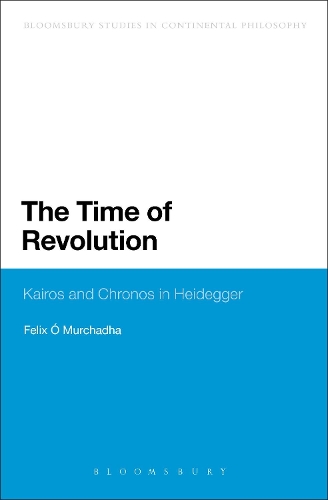
The Time of Revolution: Kairos and Chronos in Heidegger
(Hardback)
Available Formats
Publishing Details
The Time of Revolution: Kairos and Chronos in Heidegger
By (Author) Dr Felix O Murchadha
Bloomsbury Publishing PLC
Bloomsbury Academic USA
8th November 2012
United States
Classifications
Tertiary Education
Non Fiction
Social and political philosophy
115
Physical Properties
Hardback
256
Width 156mm, Height 234mm
549g
Description
This book presents Heidegger as a thinker of revolution. Understanding revolution as an occurrence whereby the previously unforeseeable comes to appear as inevitable, the temporal character of such an event is explored through Heidegger's discussion of temporality and historicity. Beginning with his magnum opus, Being and Time, Heidegger is shown to have undertaken a radical rethinking of time in terms of human action, understood as involving both doing and making and as implicated in an interplay of the opportune moment (kairos) and temporal continuity (chronos). Developing this theme through his key writings of the early 1930s, the book shows how Heidegger's analyses of truth and freedom led to an increasingly dialectical account of time and action culminating in his phenomenology of the - artistic and political - 'work'. A context is thus given for Heidegger's political engagement in 1933. While diagnosing the moral failure of this engagement, the book defends Heidegger's account of the time of human action and shows it to foreshadow his later thought of a 'new beginning'.
Author Bio
Felix Murchadha is Senior Lecturer in Philosophy at the National University of Ireland, Galway.
